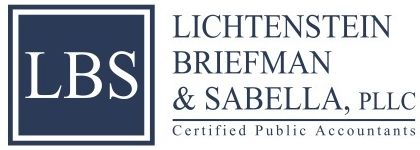The IRA Secure Act Has Estate Planners Reeling

On December 20, President Trump signed into law the Setting Every Community Up for Retirement Enhancement Act (Secure Act). The new law is mainly intended to expand opportunities for individuals to increase their retirement savings. But it also includes one big anti-taxpayer change that will send some financially comfortable folks and their estate planners reeling. The Secure Act includes some other important tax changes that have nothing to do with retirement.
No more age restriction on traditional IRA contributions
Before the Secure Act, you could not make contributions to a traditional IRA for the year during which you reached age 70 1/2 or any later year. (There’s no age restriction on Roth IRA contributions, and the Secure Act does not change that.)
New law: For tax years beginning after 2019, the Secure Act repeals the age restriction on contributions to traditional IRAs. So, for tax years beginning in 2020 and beyond, you can make contributions after reaching age 70½. That’s the good news.
Key point: The deadline for making a contribution for your 2019 tax year is April 15, 2020, but you cannot make a contribution for 2019 if you were age 70 1/2 or older as of Dec. 31, 2019. Thanks to the new law, you can make contributions for tax year 2020 and beyond.
Side effect for IRA qualified charitable distributions
After reaching age 70 1/2, you can make qualified charitable contributions of up to $100,000 per year directly from your IRA(s). These contributions are called qualified charitable distributions, or QCDs. Effective for QCDs made in a tax year beginning after 2019, the $100,000 QCD limit for that year is reduced (but not below zero) by the aggregate amount of deductions allowed for prior tax years due to the aforementioned Secure Act change. In other words, deductible IRA contributions made for the year you reach age 70 1/2 and later years can reduce your annual QCD allowance.
New age: 72 start date for required minimum distributions from IRAs and retirement plans. You generally must begin taking annual required minimum distributions (RMDs) from tax-favored retirement accounts (traditional IRAs, SEP accounts, 401(k) accounts, and the like) and pay the resulting income tax hit. However, you need not take RMDs from any Roth IRA(s) set up in your name.
Now for the bad news
Stricter rules for post-death required minimum distributions curtail ‘Stretch IRAs’: The Secure Act requires most non-spouse IRA and retirement plan beneficiaries to drain inherited accounts within 10 years after the account owner’s death. This is a big anti-taxpayer change for financially comfortable folks who don’t need their IRA balances for their own retirement years but want to use those balances to set up a long-term tax-advantaged deal for their heirs. Before the Secure Act, the required minimum distribution (RMD) rules allowed you as a non-spouse beneficiary to gradually drain the substantial IRA that you inherited from, say, your grandfather over your IRS-defined life expectancy.
10-year rule specifics: When it applies, the new 10-year rule generally applies regardless of whether the account owner dies before or after his or her RMD required beginning date (RBD). Thanks to another Secure Act change explained earlier, the RMD rules do not kick in until age 72 for account owners who attain age 70 1/2 after 2019. So, the RBD for those folks will be April 1 of the year following the year they attain age 72. Following the death of an eligible designated beneficiary, the account balance must be distributed within 10 years. When an account owner’s child reaches the age of majority under applicable state law, the account balance must be distributed within 10 years after that date.
Please feel free to contact us at Lichtenstein, Briefman and Sabella PLLC so that we can assist you personally.
Certified Public Accountants and Business Advisors
2501 S Tamiami Trail, Sarasota, FL 34239
(941) 366-3737
